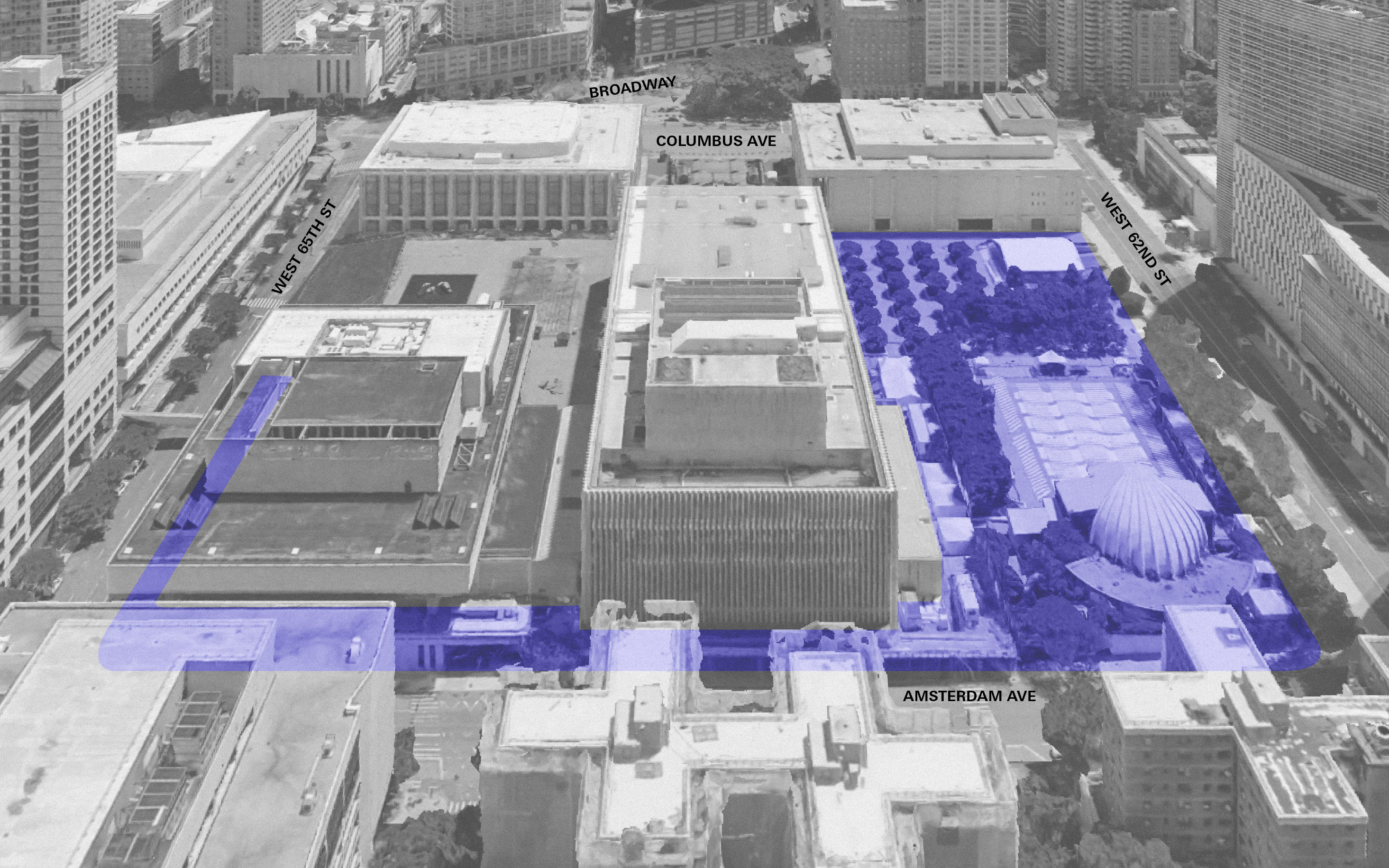
About the West Initiative
Designing a more welcoming Lincoln Center
With 16.3 acres, Lincoln Center’s campus is home to 11 performing arts and arts education nonprofits. Lincoln Center for the Performing Arts (LCPA) maintains and manages the operations of the campus as an artistic and civic cornerstone of New York City. For those approaching from the Amsterdam Avenue side, the view of Lincoln Center is far less inviting than from the Columbus Avenue side, with little direct access to the campus.
We want Lincoln Center to be welcoming to everyone—for events and performances and in everyday life. This initiative is a continuation of past renovations that opened up the campus and our outdoor spaces. Following this redesign, Damrosch Park and the western edge of the campus will better serve community members, audiences, and artists.
Area of Study

Vision, Purpose, and Goals
Legacies of San Juan Hill
The campus was originally developed as part of an “urban renewal” project in the 1950s that razed San Juan Hill, part of historic Lincoln Square, which was a culturally diverse, densely populated, and largely working-class community. In the first half of the twentieth century, it was also a lively cultural center, full of theaters, movie houses, dance halls, schools, and other artist spaces that nurtured luminaries in ragtime, stride, jazz, bebop, mambo and other Afro-Caribbean forms, visual arts, musical theater, and more. To honor the communities of that neighborhood, LCPA has invested in several major projects that shine a light on this important history and celebrate its significant cultural impact. These include the Legacies of San Juan Hill digital hub, in collaboration with the Center for Puerto Rican Studies at Hunter College (CENTRO) and the Schomburg Center for Research in Black Culture, as well as a series of events and exhibits that engage with this history from a multitude of perspectives.
The digital hub features archival images, articles, videos, playlists, and more from a range of contributing artists, historians, journalists, and community members. It is a resource that will grow over time.
This initiative is a continuation of Lincoln Center’s commitment to uplifting the arts in New York City, actioning bold projects across the campus—including the expansion of free artistic programs, designing and implementing a new Choose-What-You-Pay ticketing model, the reopening of a newly redesigned David Geffen Hall, and working with partners across the city to host blood drives, food banks, graduations, naturalization ceremonies, and more—that marry artistic work and civic service, all with a commitment to expanding access to the arts.
The Planning Process
Since summer 2023, we’ve had approximately 6,200 touchpoints with neighbors, advocates, community groups, elected officials, civic leaders, and other members of the New York City community, who have shared their ideas and feedback through interactive events, in-person and online surveys, community artmaking, interviews, and focus groups. The project team gathered input from community members and stakeholders regarding their current use of Lincoln Center’s spaces, the challenges they face when accessing and navigating the campus, and ideas for improvements. The community's input has been integral in the design of the new Damrosch Park.